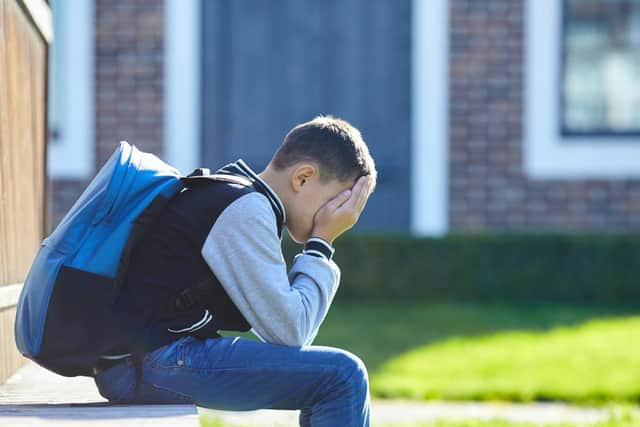Child poverty rates fall in Mid Sussex as national numbers surge
and live on Freeview channel 276
Figures from 2019-20 show that 16.3 per cent of children in the district are living in poverty, in comparison to 18 per cent in 2014-15.
The statistics also show that 4,847 children are now living in poverty, in comparison to 5,055 five year ago.
Advertisement
Hide AdAdvertisement
Hide AdThe Mid Sussex figures are well below the national average, which is at 30 per cent, and the South East average of 23.8 per cent.


Mid Sussex District Councillor Norman Webster, Cabinet Member for Community said: “Whilst it is of course welcome news that the number has decreased, especially in such a difficult year; 4,847 children living in poverty in our district is 4,847 too many and there is still work to be done. As a District Council we are committed to that work and will continue to work in close partnership with our colleagues at the county council and with our local communities to further reduce that number.”
The percentage of child poverty across England has increased by 2.2 per cent, to 28.3 per cent since 2014-15, while the South East average has dropped 0.6 per cent, to 24.4 per cent, in the same period.
The research was carried out by Loughborough University for the End Child Poverty coalition.
Advertisement
Hide AdAdvertisement
Hide AdStagnating incomes, high housing costs and cuts to the social security system have pushed many families to the brink.
The rise in poverty comes despite most families working. The proportion of children living in poverty who are in working households has increased from 67 per cent five years ago to 75 per cent now.
Sara Willcocks, Head of External Affairs at Turn2us, said: “The impact of growing up in poverty is well documented; children in low income households have worse mental and physical health, they do less well in schools and have fewer opportunities in the future.
“This is why it is morally unacceptable for any child, let alone millions, to be allowed to grow up in financial hardship.
Advertisement
Hide AdAdvertisement
Hide Ad“Unfortunately, our children are now paying the debt for a decade of austerity, cuts and freezes.
“Wages have been allowed to remain low, rents have been free to rise and nothing has been done to tackle the soaring cost of living.
“If the government truly believes in compassion and justice, ministers must fully commit to solving it.
“We are urging the Prime Minister to listen to our recommendations and include them in a comprehensive strategy to end child poverty once and for all.”
Advertisement
Hide AdAdvertisement
Hide AdA Government spokesperson said: “Latest figures show that the number of children in absolute poverty has fallen by 300,000 since 2010.
“We are committed to supporting families most in need, spending billions more on welfare and planning a long-term route out of poverty by protecting jobs through furlough and helping people find new work through our Plan for Jobs.
“We also introduced our £269 million Covid Local Support Grant to help children and families stay warm and well-fed throughout the pandemic.”
Comment Guidelines
National World encourages reader discussion on our stories. User feedback, insights and back-and-forth exchanges add a rich layer of context to reporting. Please review our Community Guidelines before commenting.